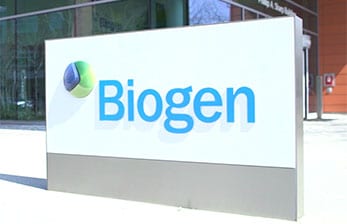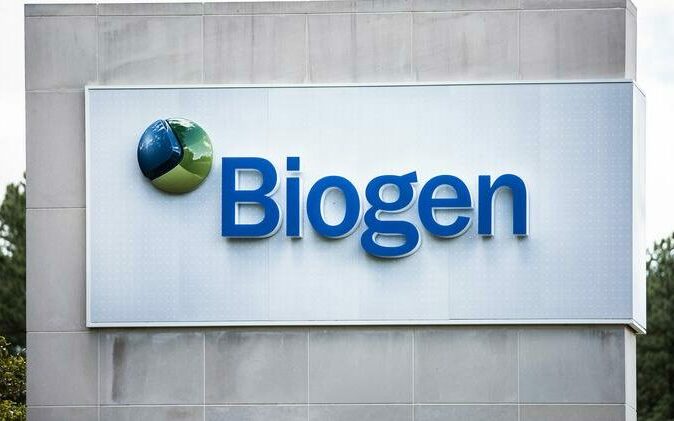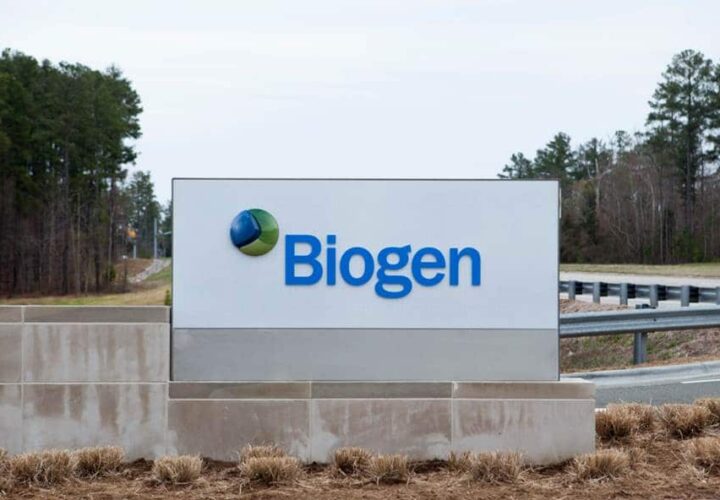European drug regulators dealt a blow to Biogen, deciding against allowing Aduhelm onto the market. Meanwhile, the company slashed the price of its drug by half.
UPDATE: 3 March 2024, 8:39 P.M. ET. In February 2024, Biogen took Aduhelm off the market, citing financial concerns. Although the drug did receive accelerated, conditional FDA approval for the treatment of early Alzheimer’s disease in 2021, it is no longer available to new patients. The company announced it would sunset trials in May 2024 and cease supplying the drug to current patients in November 2024.
Biogen is slashing in half the price of its controversial drug Aduhelm, which was approved by the FDA in June as the first disease-modifying drug to treat Alzheimer’s. The price cut brings the average annual cost to patients down from about $56,000 per year to $28,200 per year, the company announced today. The company added it plans to cut costs by some $500 million, though didn’t share a plan for just how they would do that.
Meanwhile, European drug regulators have said no to Aduhelm in the European market.
Drugmakers are slashing Aduhelm’s price in half
Despite Aduhelm’s approval being a major milestone for Alzheimer’s treatment, it has not been widely prescribed, in part by cause health insurers are declining to cover it. Some clinics and hospitals have also declined to prescribe it. The high price tag alone spurred a rise in Americans’ Medicare premiums nationwide.
“Too many patients are not being offered the choice of Aduhelm due to financial considerations and are thus progressing beyond the point of benefiting from the first treatment to address an underlying pathology of Alzheimer’s disease,” Biogen Chief Executive Michel Vounatsos said.
EMA turns down Aduhelm in European market
Weeks after a European advisory panel declined to provide the drug a vote of confidence, drug regulators have now decided against allowing Aduhelm onto the European market. The anti-amyloid drug has been mired in controversy surrounding its U.S. approval and its questionable efficacy. While an expert panel in the U.S. previously recommended against Aduhelm’s American approval, it was ultimately approved by the Food and Drug Administration.
“The studies did not show that the medicine was sufficiently safe as images from brain scans of some patients showed abnormalities suggestive of swelling or bleeding, which could potentially cause harm,” the regulators stated in their report. “Furthermore, it is not clear that the abnormalities can be properly monitored and managed in clinical practice.”
A day before this decision, Biogen announced their intention to run a confirmatory trial for Aduhelm which will start in 2022 and finish in 2026.
After the blow from the European Medicines Agency (EMA), Biogen released a statement that they will ask for a second opinion from the Committee for Medicinal Products for Human Use. Per the European Commission’s regulation, Biogen can request a re-examination by submitting detailed grounds for the request. A final decision will then be announced within 60 days.
“For Europeans impacted by Alzheimer’s disease, the lack of options to treat its early stages is felt every day. The longer we wait, the more people will progress toward more advanced dementia and we may miss the opportunity to potentially treat them,” said Dr. Priya Singhal, head of global safety & regulatory sciences and interim head of research and development at Biogen.
The statement from Biogen did not address the specific safety and efficacy issues brought up by EU regulators.
What’s ahead for Aduhelm and other anti-amyloids?
For Biogen, 2021 is ending on a low note. The company’s top scientist, who spearheaded Aduhelm’s development, Alfred Sandrock, had off-the-books meetings with FDA officials that are now under federal investigation; Sandrock announced his unexpected retirement on November 15th. STAT News also recently reported on internal dysfunction within Biogen, which may have led to Sandrock’s departure.
To boot, Biogen underperformed its sales estimates by millions. Shareholders hope the new price reduction might move the dial in 2022.
For other anti-amyloid agents on the verge of completing their Phase 3 trials — donanemab, lecanemab, and ganteranumab — Biogen’s year may bear lessons about the threshold of evidence required for entry into other markets.



